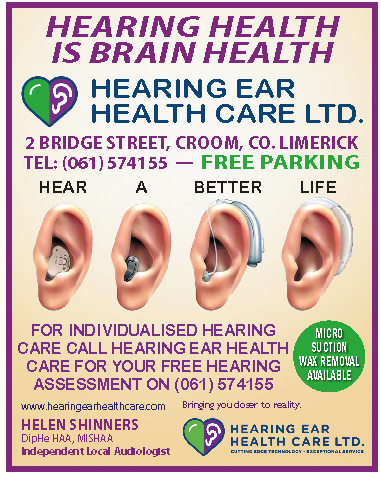A collaboration between University of Limerick and UL Hospitals Group has seen the design and capacity created to manufacture 100,000 face visors for HSE front-line staff.
The Rapid Innovation Unit at UL, an SFI Confirm Centre funded 3D printing activity that works in collaboration with University Hospital Limerick, mobilised a team to innovate immediate solutions in response to the COVID 19 crisis.
The unit has previous experience in rapid design and 3D printing of medical devices in response to clinical requests.
Following a request from Professor Paul Burke, Chief Academic Officer at UL Hospitals Group and Vice Dean of Health Sciences at UL, academics and clinicians at the Rapid Innovation Unit at UL worked to design and manufacture novel solutions where doctors had identified potential shortages of equipment should COVID-19 cases surge.
In less than two weeks, the team designed solutions to three critical clinical challenges facing clinicians due to the pandemic.
These include capacity to manufacture 100,000 face visors for HSE front-line staff, refinement of a shield concept to protect anaesthesiologists during patient intubation for ventilation, and design of adapters for respiratory technologies to undergo a clinical trial.
The design solutions will help to protect the health of front line staff and increase treatment capacities in the hospital system.
The first batch of visors were delivered to UHL this Thursday, while the shield box and adaptors are about to be put into practice. The face visors are in Limerick green and say ‘The Limerick Visor: Front Line Heroes’.
“There has been a phenomenal collaborative effort to deliver these solutions in a very short timeframe,” explained Professor Leonard O’Sullivan, of UL’s School of Design and the Health Research Institute based at UL.
Professor O’Sullivan noted that brothers Aidan and Kevin O’Sullivan, research fellows at UL, had “pulled out all the stops to lead the team to deliver these rapid response solutions for the hospital”.
The collaboration between the Rapid Innovation Unit and the consultants was facilitated by the Health Sciences Academy, a partnership between UL, the UL Hospitals Group and the Mid-West Community Healthcare Organisation.
The HSA, based at the Clinical Education Research Centre at UHL, was established to strengthen links between practicing clinicians and researchers from the University.
The Rapid Innovation Unit worked with local companies on the manufacture of the visors, which will go straight into use on the front line of the COVID-19 fight and were warmly received by the team at the hospital.
Professor Paul Burke explained: “We have heard the World Health Organisation repeatedly stress the importance for governments, healthcare professionals, scientists and industry to act with speed in response to COVID-19.
“It is heartening to see our Health Science Academy being able to facilitate the Rapid Innovation Unit to work closely with our clinicians and local industry to do precisely that,” he added.
Regarding the face visors, Professor O’Sullivan explained the local companies had enabled capacity to manufacture up to 5,000 visors a day.
“The visors can be for multiple use but it is likely also be for single use given the current circumstances,” he explained.
The normal production time on a project like this would take months, but it was done in just nine days. This was accomplished through the local companies working very intensively together, Professor O’Sullivan said.
“We had a team of three consultants and three designers involved in daily brainstorming and design review meetings, which is something you don’t have except in a critical situations,” he explained.
“We went to the coalface to establish what the critical needs were and we delivered solutions. This had to be done as quickly as possible. The local industry partners worked tirelessly to meet the volume production requests,” said Professor O’Sullivan.
Mr Tony Moloney, Consultant Vascular Surgeon, UL Hospitals Group, said: “It seems like a long time ago but it was only on March 26 that the scientists and clinicians who form the Rapid Innovation Unit met for the first time on this. Everything we have ever done as a group has been done remotely in keeping with the COVID-19 guidelines.
“The Limerick companies involved have also been on those conference calls, out-of-hours and seven days a week, and I’m told what would normally take months from concept to production has been completed in a matter of days. Three of the four projects initiated are already complete. These are products that will protect healthcare workers and ensure they are there for their patients at this time,” he added.










